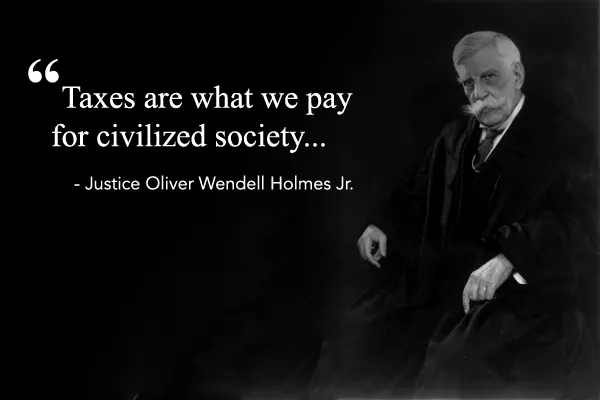
I recently had cause to look up the source of Justice Holmes' quote about how taxes are the price we pay for civilized society.
Believe it or not, it's even worse than that:
"It is true... that every exaction of money for an act is a discouragement to the extent of the payment required, but that which, in its immediacy, is a discouragement may be part of an encouragement when seen in its organic connection with the whole. Taxes are what we pay for civilized society, including the chance to insure. A penalty, on the other hand, is intended altogether to prevent the thing punished. It readily may be seen that a state may tax things that, under the Constitution as interpreted, it cannot prevent...
"Sometimes there may be a difficulty in deciding whether an imposition is a tax or a penalty, but generally the intent to prohibit, when it exists, is plainly expressed. Sometimes, even when it is called a tax, the requirement is shown to be a penalty by its excess in amount over the tax in similar cases, as in St. Louis Cotton Compress Co. v. Arkansas. But, in the present instance, there is no room for doubt. The charge not only is called a tax, but is the same in amount as that imposed where the right to impose it is not denied."
So:
Taxes are the price that we pay for civilized society.
We can know that it's a tax because if it's not a tax, we'll tell you. Usually.
A tax is not a disincentive because [literally a Hegelian dialectic, using Hegelian jargon, that turns a thing into its opposite].
I feel like punching him... and then saying, "This is only an assault in its immediacy. It is an encouragement when seen in its organic connection with the whole. I just want you to be a better jurist, that's all."